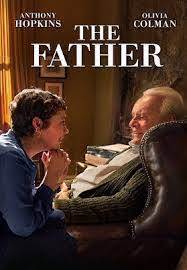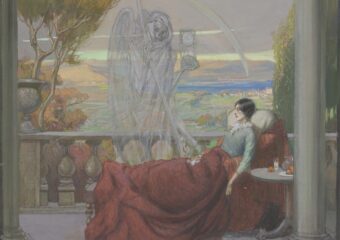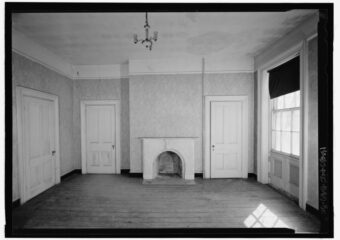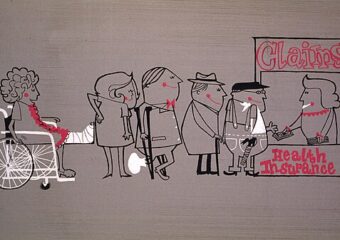Florian Zeller – screenwriter and director
Christopher Hampton – translator
Trademark Films
Release Date (USA) – February 26, 2021
Running time – 97 minutes
According to the Art:
Florian Zeller, the screenwriter and director, admits he wants viewers feeling what people with dementia feel. He succeeds in the movie as he succeeded in the Broadway play version preceding it.
Synopsis:
The basic plot of The Father mirrors the all-too-common trajectory people with dementia follow: first they deny any problems; then they progressively need more in-home assistance; and then they require institutionalization. This scenario, however, gets obscured when watching the film’s main character—the father—wrestle with quotidian activities and familiar faces. The viewers wrestle with him, and become just as confused and rattled. Florian Zeller, the screenwriter and director, admits he wants viewers feeling what people with dementia feel. He succeeds in the movie as he succeeded in the Broadway play version preceding it.
The father, Anthony, lived in his London flat with help from hired caregivers and his daughter, Anne, who lived nearby. After Anthony banished several caregivers on grounds they were unnecessary, Anne moves him into her flat, and when he’s too much for her there, she moves him to a nursing home. We’re never quite sure, though. Zeller makes the two flats and the nursing home look almost identical. He changes Anne’s story at different times: she’s still married after ten years; she’s been divorced for five years; she’s relocating to Paris with a lover; she was never relocating to Paris; she relocated to Paris. Anne appears as a different person on occasion and the husband she may or may never had appears as different people. Zeller overlays these confusing surroundings and events by jumping forward and backward in time, and repeating some scenes with slight variations. Eventually, Anthony says, “strange things are going on around us.” Viewers will feel the same, and that’s the point.
The movie ends as Anthony awakes in his nursing home room. Just as we are lured into thinking we have returned to the common dementia trajectory at its end, we see his nurse is the person who had appeared as Anne before, and his room looks like the bedrooms in both his own and Anne’s flats. We wonder.
Analysis:
Zeller has done this story before with a staged version on Broadway in 2016, which I cover here. He also staged another Broadway play in 2019 (Height of the Storm) based on the same theme, but using a jazz idiom to create a feeling of dementia for the audience, which I cover here.
Zeller confuses movie viewers as he confused theatre audiences with stage effects, time loops, contradictory dialogs, and role confusion among other devices. No wonder Anthony and viewers cannot keep track of people, places, or time at different moments. Problems with time seem weighted more heavily in the movie. As in the play, Anthony searches frantically for his watch when he is disoriented. Unlike the play, Zeller makes actual time subtly discernable through the haze of time fragments forming the movie. Anthony’s visit to a doctor shows his dementia is progressing. Boxed-up books under half-empty shelves and paintings stacked against bare walls show Anthony is moving to other quarters. The viewers can thus hang onto traces of the expected dementia trajectory like listeners to jazz improvisations can hang onto traces of original song melodies.
The movie medium also lets Zeller frame close-up shots when a character’s face can express emotions or other reactions that stage productions cannot always replicate, for example when Anthony appears lonely and unsettled. In the play, the father character was more often angry and frustrated, which is discernable from a distance when a lonely countenance isn’t.
At the expected Shakespearean end of his dementia trajectory, Anthony is crying for his “mommy” in the arms of his nursing home nurse, and lamenting that he is “losing all my leaves…the branches the wind and the rain.”
Last scene of all,
That ends this strange eventful history,
Is second childishness and mere oblivion,
Sans teeth, sans eyes, sans taste, sans everything.*
Unless it was all just a dream he had.
Also:
*Taken from William Shakespeare’s “All the World’s a Stage” monologue in his play, As You Like It.
The film won two Academy Awards in 2021:
Anthony Hopkins: Best Actor
Best Adapted Screenplay
Seen as streamed on Amazon Prime.
A version of this post is here at the NYU Literature, Arts and Medicine Database.
I provide another take on the movie focusing on how the images of a movie offer insights on the illness experience of dementia while images from biotechnology (PET, MRI, CT) offer insights on the disease of dementia in the Summer 2021 issue of The Pharos.
This movie is featured in an episode of the affiliated podcast, The Clinic & The Person: He Wants to Itch at It: A Novel, A Play, and a Movie Imagining Dementia.



